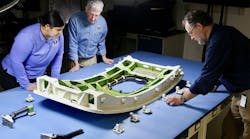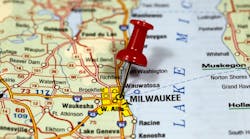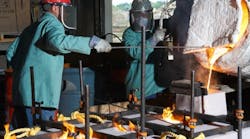Aiming to achieve the largest reduction in air pollution in more than a decade, the U.S. Environmental Protection Agency has taken several steps to assure the successful implementation of the Clean Air Interstate Rule (CAIR), issued on March 10.
The CAIR will require 28 states and Washington, DC, to reduce emissions of nitrogen oxide (NOx) and sulfur dioxide (SO2) from power plants. When fully implemented, the reduction of NOx will be over 60% of 2003 levels SO2 will be at 70% of 2003 levels. It is estimated that more than $100 billion will be saved in health and visibility benefits and 17,000 premature deaths annually by 2015.
After the final CAIR was issued, 12 state, local, and private organizations filed petitions, requesting that the EPA reconsider certain aspects of the rule. The EPA reopened six issues, responding by issuing a final notice explaining the agency’s decision that five issues raised in the petitions will not be changed; clarified that solid waste incinerators (particularly municipal waste incinerators) are not considered electric generating units; and notifying petitioners of the agency’s decision on the remaining petition requests.
The EPA also issued a final rule to include Delaware and New Jersey in CAIR, requiring the emissions of NOx and SO2; both were already subject to the ozone requirements. This move will assist surrounding states meet standards.
Federal implementation plan (FIP) rules were also finalized, providing for a federal emission reduction back-up plan, should a state fail to put an adequate implementation plan in place on time.
NH Foundry Warned By OSHA, Again
The Franklin Nonferrous Foundry Inc. in Franklin, NH is facing $120,200 in fines from the Occupational Safety and Health Association (OSHA) for consciously exposing employees to hazards they’ve been fined for in the past.
Franklin Nonferrous casts brass, bronze, and aluminum to form various valves, locks, and other machinery. The foundry is a family-owned business with less than nine employees.
During their inspection in September, OSHA inspectors found breathing air with 1.5 times the federal limit for lead dust and noise levels above the 85-decibel limit. Employees were also pouring hot metal without heat-proof gloves, pants, and aprons. Twelve serious citations totaling $19,200 and seven willful citations totaling $95,000 were issued.
Since 1998, Franklin Nonferrous paid $54,000 in OSHA fines after failing inspections, according to OSHA spokesperson Ted Fitzgerald. The initial charges stemmed from high levels of lead and cadmium, and since then the foundry has been cited for failing to test lead blood levels and hearing loss in employees in four different years.
The company has responded to the recent OSHA complaints and an informal hearing has been requested, either to contest the charges, or agree to a settlement. OSHA does not have the authority to shut down a company for repeat offenses unless risks could lead to immediate death.
“This employer has known for years what steps must be taken to protect employees’ health and safety, but has refused to implement them,” said Rosemarie Ohar, the New Hampshire director of OSHA. “These are clearly recognized hazards in foundry work that can lead to serious illness, injury, and hearing loss if the required safeguards are not implemented or are ignored altogether.”
Briefly noted: The U.S. Environmental Protection Agency’s Region 5 reached an agreement with GNW Aluminum Inc. on alleged clean-air violations at their aluminum recovery plant in Alliance, OH. The agreement includes a $5,000 penalty that resolves allegations that GNW failed to comply with federal testing, planning, and reporting requirements for its sweat furnace, used to reclaim aluminum from scrap. GNW has installed an afterburner to control dioxin and furan emissions from the sweat furnace and certified it is now in full compliance with national emission standards. …
The U.S. EPA Region 5 and Trialco Inc. have reached an agreement on alleged clean-air violations at the company’s aluminum recovery plant in Chicago Heights, IL. The agreement includes two environmental projects totaling $426,000 and a $20,000 penalty, resolving allegations that Trialco did not comply with testing, operating, monitoring, notification, recordkeeping, and reporting requirements. …
Representatives from the U.S. EPA, Japanese Ministry of the Environment, and Institute for Global Environmental Strategies met in late March to discuss ways to improve air quality and promote clean energy, energy security, and economic opportunities. Those in attendance agreed to strengthen international cooperation on actions that will simultaneously reduce emissions of global greenhouse gases and other air pollutants. “By exporting our successes, this U.S.-Japan partnership can help developing countries understand that environmental protection and economic progress can, and do, go hand in hand,” said EPA Administrator Stephen Johnson.








